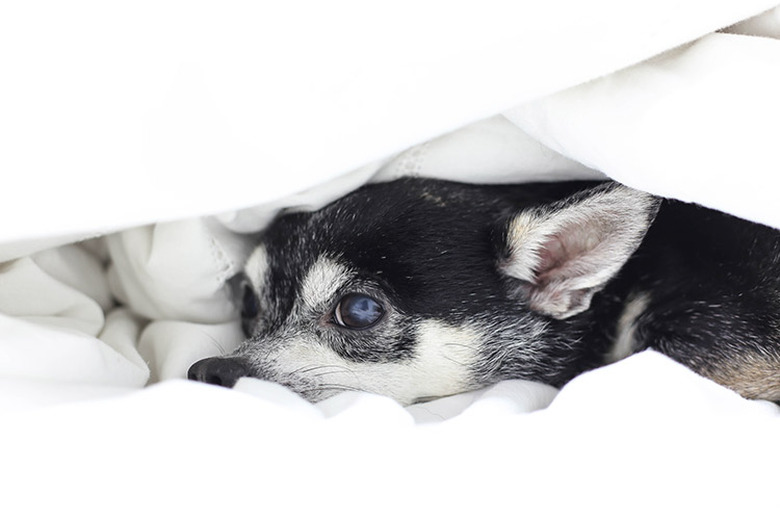Keeping Pets Warm During A Power Outage
For power outages lasting only a few hours, most pets kept indoors, from dogs and cats to birds and snakes, will survive just fine without their usually heated accommodations. However, power outages that last all night in the middle of winter can be a serious health risk to some sensitive species or elderly and sick pets. Keeping supplies on hand to quickly warm your pets during such a power outage may help them survive through an unexpected cold night.
Furry Critters
Provide any mammals, such as dogs, cats or rabbits, with extra bedding. This will allow the animals to use their own body heat to warm the bedding, keeping the area warmer. For bedding, give what you would normally provide to those animals, such as blankets for a dog or cat or pine shavings for rabbits and hamsters.
Birds
Cover bird cages with a large sheet. As with the mammals, this will allow the bird's body heat to warm the cage, and the sheet will help keep that warmer air within the cage.
Fish
Put a thick blanket over aquatic tanks. This will prevent the heated water from losing that heat quickly.
Reptiles
Use chemical heat packs to help warm the cage of reptiles and invertebrates that must have heat. Put the chemical heat packs into at least three layers of fabric before placing the chemical heat pack into a corner of the cage. For example, for a snake, you may put the chemical heat pack into a sock, then wrap the sock inside a T-shirt, and then place that bundle into a pillow case. Tie the opening of the pillow case into a knot so the animal cannot climb inside and get burned.
Ask For Help
Contact local hotels or animal shelters if the power outage is extensive and you are having trouble keeping your pets warm. Local hotels and animal rescues with power may be able to house your pets temporarily until your power comes back on.
By Lynn Anders
Caution
For animals using chemical heat packs, it's important to focus on warming the habitat and not the animal, as putting the packs directly on the animal can cause severe burning.
Feel the heat pack bundle every 15 minutes for at least an hour to ensure it did not get too hot. If you feel it is too hot to touch, it is too hot for your pet.
About the Author
Lynn Anders has more than 15 years of professional experience working as a zookeeper, wildlife/environmental/conservation educator and in nonprofit pet rescue. Writing since 2007, her work has appeared on various websites, covering pet-related, environmental, financial and parenting topics. Anders has a Bachelor of Arts in environmental studies and biology from California State University, Sacramento.
